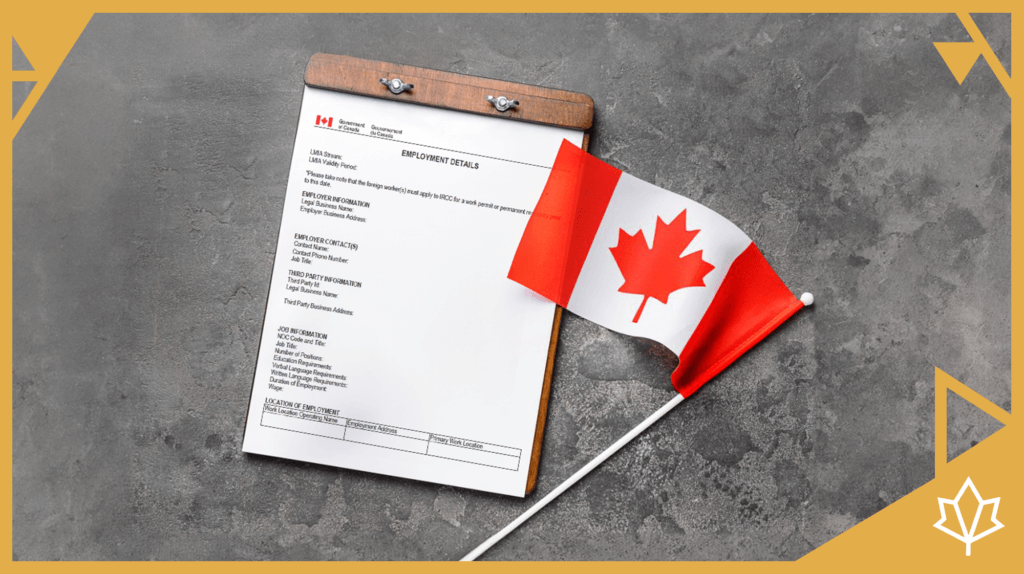
Northwest Territories Restores 2025 Nominee Quota to 2024 Levels, Allowing Up to 300 Nominations
The Government of the Northwest Territories (NWT) has announced that its 2025 Northwest Territories Nominee Program (NTNP) allocation has been restored to 2024 levels following federal approval. The total quota will rise to 300, up significantly from 197 earlier this year. Minister of Education, Culture, and Employment Caitlin Cleveland stated that preparations are underway for the next NTNP intake period, which will open additional pathways for skilled workers to obtain provincial nomination. This adjustment makes the NWT the first jurisdiction in 2025 to regain its pre-reduction quota, marking a key milestone in the territory’s ongoing efforts to address critical labor shortages through immigration.
10/21/2025

Canada Closes Permanent Residence Pathway for Overseas Caregivers
Immigration, Refugees and Citizenship Canada (IRCC) recently updated its official website to indicate that the "applicants not working in Canada" stream under the Home Care Worker Immigration Pilots (HCWP) has been officially closed. This stream was marked as "closed" on September 29, 2025, without ever having opened to accept applications since the program's launch. Despite this closure, overseas caregivers still have alternative pathways to immigrate to Canada through Express Entry, Provincial Nominee Programs, and other routes. Industry analysts suggest this decision may be linked to severe application backlogs and the federal government's policy shift toward prioritizing the transition of temporary residents already in Canada to permanent residence status.
10/02/2025

Quebec Issues New Round of Invitations Under Skilled Worker Program, Over 200 Candidates Invited
On August 28, 2025, Quebec's Ministry of Immigration, Francization and Integration (MIFI) issued 231 invitations to apply for a Quebec Selection Certificate (CSQ) through its Regular Skilled Worker Program (PSTQ). This round of invitations primarily targeted two specific categories of candidates: highly skilled individuals with work experience outside of regulated professions and those with exceptional talent. The draw takes place against the backdrop of comprehensive immigration policy reforms being developed by the province, highlighting Quebec's current preference for applicants who are already in the province and possess advanced education and specialized skills.
09/12/2025

Saskatchewan Receives Increased Immigration Allocation, Creating New Opportunities for Priority Sectors
The Canadian province of Saskatchewan has announced that its 2025 Provincial Nominee Program (SINP) has received an additional 1,136 nominations from the federal government, bringing its total annual allocation to 4,761. This adjustment reopens application pathways for several sectors that were previously paused due to reaching their caps. Against a backdrop of diverging immigration allocation trends across Canada, this development in Saskatchewan, along with increases in several other provinces, highlights the complex and evolving landscape of federal and provincial immigration policies.
08/29/2025

Quebec's New Skilled Worker Program (PSTQ) Is Live, Prioritizing In-Province Candidates in First Draw
On July 17, 2025, the province of Quebec launched its new Skilled Worker Selection Program (PSTQ) with its first invitation round since the program's reform in 2024. A total of 238 candidates were invited, with a precise focus on individuals already residing in Quebec who possess French language skills, local educational credentials or work experience, and are in occupations that address labour shortages. This inaugural draw targeted the "Highly qualified and specialized skills" and "Exceptional talent" streams, signaling a definitive policy shift towards prioritizing candidates already integrated into Quebec society.
07/29/2025

Unlocking the Career Door for International Students in Canada: Essential Guide to Applying for the Post-Graduation Work Permit (PGWP)
For many international students aspiring to work and settle in Canada, obtaining a Post-Graduation Work Permit (PGWP) is a crucial first step. Immigration, Refugees and Citizenship Canada (IRCC) clearly states that PGWP eligibility hinges on studying at a qualified Designated Learning Institution (DLI) and enrolling in a PGWP-eligible program. Notably, beginning November 1, 2024, graduates at certain study levels will face new language proficiency and field of study restrictions. This report provides a detailed interpretation of IRCC's relevant regulations, guiding international students on how to choose schools and programs correctly to ensure successful PGWP acquisition.
05/12/2025

2025 Canada International Student Transfer Policy: Comprehensive Analysis
Starting in 2025, Immigration, Refugees, and Citizenship Canada (IRCC) has introduced a series of new regulations for international student transfers, clarifying situations that require reapplication for study permits and outlining how to maintain eligibility for PGWP after transferring. Notably, IRCC has also implemented temporary transition measures for students transferring between January and May 2025, allowing them to start at their new institution before the new permit is approved. This report provides an in-depth analysis of application requirements, procedures, fees, and PGWP considerations.
01/17/2025

2024 Canadian Immigration Policy Review — Changes to LMIA-Exempt Work Permits
In 2024, the Canadian federal government introduced several adjustments to its Labour Market Impact Assessment (LMIA)-exempt work permit policies. These changes encompass Spousal Open Work Permits (SOWP), New work permit for PNP nominee candidates, Updated instructions regarding ICTs under the IMP and more, aimed at optimizing immigration structures and managing the proportion of temporary residents. Below is a professional analysis of the key policy changes and their implications.
01/13/2025

Early Childhood Education, Child Development, and Other Education-Related Programs Included in the Post-Graduation Work Permit (PGWP) Eligibility
The Immigration, Refugees, and Citizenship Canada (IRCC) recently announced an expansion of the Post-Graduation Work Permit (PGWP) eligible programs, adding several new education-related fields. This adjustment provides international students with more opportunities for employment and immigration in Canada and supports the long-term labor market needs of the country.
01/08/2025

International Students at the University of Waterloo Outearn Domestic Graduates, Leading Employment Success
A recent study revealed that international students at the University of Waterloo earn significantly higher average salaries after graduation compared to domestic students. These earnings surpass not only their peers at the university but also the national average. The study attributes this success to degrees in technology and engineering and the university’s robust co-op program. Furthermore, approximately 70% of international students choose to become permanent residents, highlighting their recognition of opportunities for long-term development in Canada.
12/13/2024